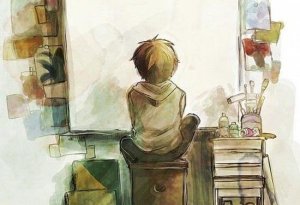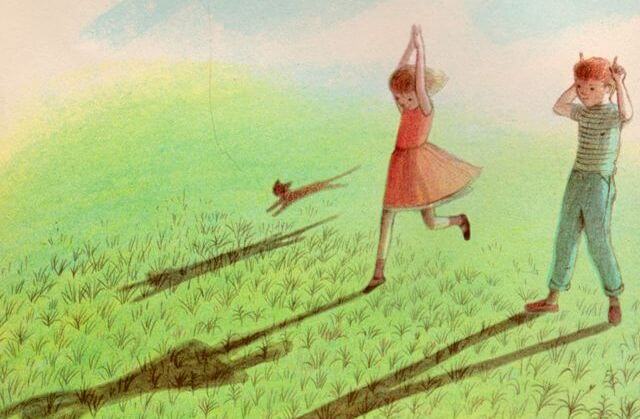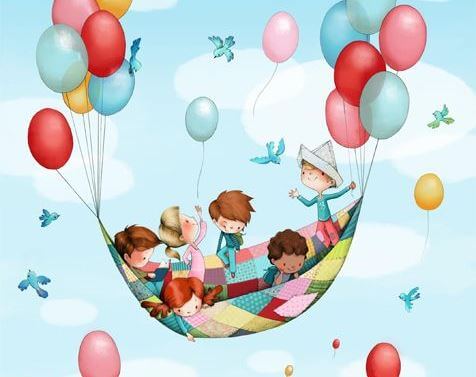Old Age Starts Where Curiosity Ends


Reviewed and approved by the psychologist Sergio De Dios González
If there were something that truly moves us, it would be curiosity and the desire to know new things, worlds, and experience. Curiosity is born with us and it stays throughout our entire life: the moment that we feel that there is nothing that motivates us to keep learning, we have a problem.
This is the great reason why the Portuguese writer, Saramago, told us that “old age starts where curiosity ends.” In other words, we associate youth with vitality and the desire to enjoy the world without limits, whereas we associate old age with contentment with life and the loss of our appetite to discover more about the things around us…
“I could not, at any age, be content to take my place by the fireside and simply look on. Life was meant to be lived. Curiosity must be kept alive. One must never, for whatever reason, turn his back on life.”
-E. Roosevelt-
Curiosity: the defining characteristic of children
Surely you have been able to see that children, above all when they are at the youngest ages, have a desire to know extremes. They are filled with an energy that moves to them question everything, to want everything, and to touch everything that lies in their path. This is normal, they are growing, and they want to know where they are and what it is that life has to offer them.

To a certain degree, this is the first step in their learning as people, and we adults are the ones who are obligated to encourage them to let this curiosity continue and to develop in a positive and intellectual way. It is in this way that we have also learned to maintain our constant curiosity, the kind that moves us and leads us to overcome challenges: it is that which makes us feel young (more like children).
“I think that if we lose our curiosity, there is nothing; there is no reflection and therefore there is no knowledge and there is no possibility of knowing, of getting to the bottom of something. Without curiosity, straightaway you are not living.”
-Luis Eduardo Aute-
The inverted arc of curiosity
Various studies have been undertaken to try to understand human curiosity. The studies have shown, in short, that we are more curious at those times when we know a little bit about a certain topic and we want to know everything about it.
In those cases, curiosity can be represented with an inverted U, where the starting point awakens our curious desire to know the complete amplitude of the aforementioned U. This factor is related to other studies that have shown that curiosity is connected to our memory and learning: curiosity helps us not forget that which can be called motivated learning, as a recompense.
How to promote curiosity
With everything said above, we can understand why old age is often believed to involve a lack of curiosity: no longer wanting to learn is similar to taking away meaning in life. It is important to always keep some curiosity within us, the kind that has brought us to listen through doors or to discover America. Thanks to this, we have made advances in every imaginable field of study.
The best way to encourage this curiosity is, as we have already said, to stimulate it, in its positive part, in children. Here we are going to look at some ways to do this:
- Developing the imagination: experiment and let them experiment, try to turn daily routine into new “excursions” where something new is learned each and every day.
- Lead by example: If you want a child to learn something, accompany what you are saying with an example. If they see that you still have your curiosity, even for daily things, they will do it as well.
- Respond to their questions: It serves absolutely no purpose to respond to a child with “just because,” except to make them be quiet. Try to give them a coherent explanation so that these explanations can little by little lead them to ask more questions.
- Let them do things for themselves: Children have to find out that they can make mistakes and that it is necessary to do this in order to learn. If you give them the chance to understand this, you will be helping them to handle themselves in difficult situations and, at the same time, to strengthen their creativity.

“Luckily, nature has provided me with an irrational curiosity for the most trivial things. That saves me. Curiosity is the only thing that keeps me afloat. Everything else makes me sink.”
-Pedro Almodóvar-
If there were something that truly moves us, it would be curiosity and the desire to know new things, worlds, and experience. Curiosity is born with us and it stays throughout our entire life: the moment that we feel that there is nothing that motivates us to keep learning, we have a problem.
This is the great reason why the Portuguese writer, Saramago, told us that “old age starts where curiosity ends.” In other words, we associate youth with vitality and the desire to enjoy the world without limits, whereas we associate old age with contentment with life and the loss of our appetite to discover more about the things around us…
“I could not, at any age, be content to take my place by the fireside and simply look on. Life was meant to be lived. Curiosity must be kept alive. One must never, for whatever reason, turn his back on life.”
-E. Roosevelt-
Curiosity: the defining characteristic of children
Surely you have been able to see that children, above all when they are at the youngest ages, have a desire to know extremes. They are filled with an energy that moves to them question everything, to want everything, and to touch everything that lies in their path. This is normal, they are growing, and they want to know where they are and what it is that life has to offer them.

To a certain degree, this is the first step in their learning as people, and we adults are the ones who are obligated to encourage them to let this curiosity continue and to develop in a positive and intellectual way. It is in this way that we have also learned to maintain our constant curiosity, the kind that moves us and leads us to overcome challenges: it is that which makes us feel young (more like children).
“I think that if we lose our curiosity, there is nothing; there is no reflection and therefore there is no knowledge and there is no possibility of knowing, of getting to the bottom of something. Without curiosity, straightaway you are not living.”
-Luis Eduardo Aute-
The inverted arc of curiosity
Various studies have been undertaken to try to understand human curiosity. The studies have shown, in short, that we are more curious at those times when we know a little bit about a certain topic and we want to know everything about it.
In those cases, curiosity can be represented with an inverted U, where the starting point awakens our curious desire to know the complete amplitude of the aforementioned U. This factor is related to other studies that have shown that curiosity is connected to our memory and learning: curiosity helps us not forget that which can be called motivated learning, as a recompense.
How to promote curiosity
With everything said above, we can understand why old age is often believed to involve a lack of curiosity: no longer wanting to learn is similar to taking away meaning in life. It is important to always keep some curiosity within us, the kind that has brought us to listen through doors or to discover America. Thanks to this, we have made advances in every imaginable field of study.
The best way to encourage this curiosity is, as we have already said, to stimulate it, in its positive part, in children. Here we are going to look at some ways to do this:
- Developing the imagination: experiment and let them experiment, try to turn daily routine into new “excursions” where something new is learned each and every day.
- Lead by example: If you want a child to learn something, accompany what you are saying with an example. If they see that you still have your curiosity, even for daily things, they will do it as well.
- Respond to their questions: It serves absolutely no purpose to respond to a child with “just because,” except to make them be quiet. Try to give them a coherent explanation so that these explanations can little by little lead them to ask more questions.
- Let them do things for themselves: Children have to find out that they can make mistakes and that it is necessary to do this in order to learn. If you give them the chance to understand this, you will be helping them to handle themselves in difficult situations and, at the same time, to strengthen their creativity.

“Luckily, nature has provided me with an irrational curiosity for the most trivial things. That saves me. Curiosity is the only thing that keeps me afloat. Everything else makes me sink.”
-Pedro Almodóvar-
This text is provided for informational purposes only and does not replace consultation with a professional. If in doubt, consult your specialist.







